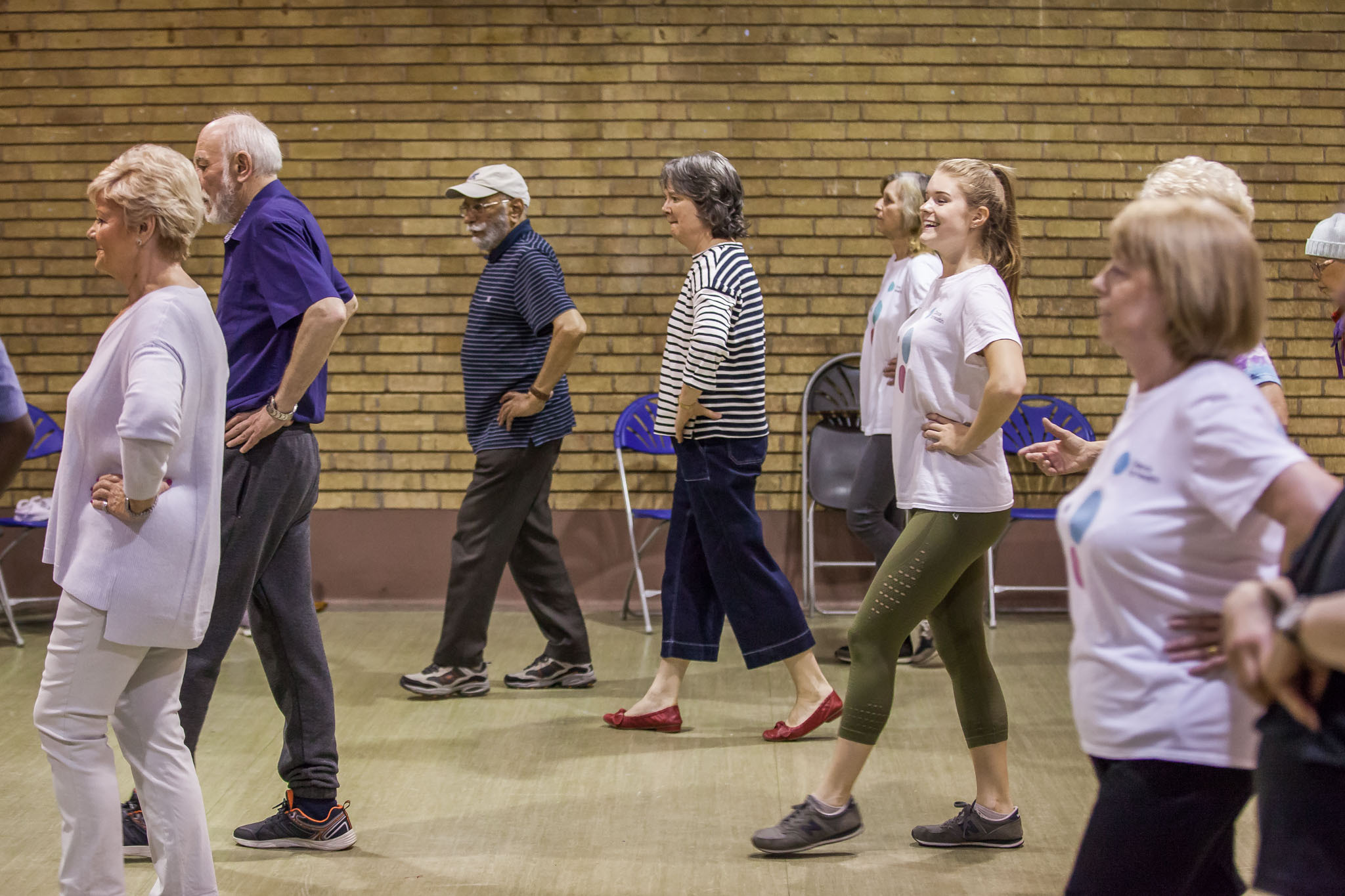As part of #VolunteersWeek I wanted to talk about the importance of intergenerational work.

Celebrating Volunteers Week and the Importance of Intergenerational Work

Intergenerational work is an area that is vital during the current climate, with many older people being isolated at home with little access and support. Young people can really make a difference to older generations in so many small ways.
Cross-generational social activities date all the way back to the 1700’s with social dancing being a general principle of the villages of the time. The term ‘cross-generational’ and ‘intergenerational’ has evolved out of necessity, as contemporary culture has become more fractured, with trends changing rapidly across generations, and communities are more disparate.
In 2018 I volunteered for a programme called Dance to Health run by the Social Enterprise and Charity, Aesop. With a recent degree in Dance, a love for the older generation, and a dissertation dedicated to community dance and its effects on isolation and loneliness, the programme could not have been more perfect.
Based in six locations around the UK, the programme combines evidence-based falls prevention principles with the creativity, expression and energy of dance. Being from the Midlands, I was volunteering weekly in Birmingham, in two uniquely different venues. In Birmingham, the programme was partnered with Birmingham Royal Ballet, incorporating the exercise principles within classical famous ballets.
In both classes, I took the class payment, the register, assisted teaching, assisted physically when participants were struggling, and oversaw the post-dance tea & biscuits!
Listening to the talent of Tchaikovsky whilst improving fitness and mobility was a joy for these older people, and I got so much happiness myself from being around them and learning all about their lives. It was fantastic to witness one participant get up from a chair without using their hands, something they could not do before attending classes. I was relied upon for advice and physical support and these people really cared about my progress and how my career search was going.
Additionally, the older people enjoyed a young person to talk to, to share stories with and offer their own words of wisdom (to which I was all ears). For many older people, retirement, the loss of social networks, bereavements, single living and health issues will put them at greater isolation from society. For some, weeks can go by without seeing or talking to another person.

Connecting with older generations is even more important today than ever
Covid-19 and the risks it poses to vulnerable members of society, including older people, make this connection across generations even more crucial.
Rebecca Harris wrote an article in The Independent titled The Loneliness Epidemic: We’re More Connected Than Ever, But Are We Feeling More Alone? (2015) which highlights the fact that we now live in a technology-to-person world instead of face-to-face contact world. Technology is ever more present during this pandemic, with most of the population using it in professional and personal ways to communicate with the outside world. Whilst there are several benefits to technology and the potential it generates, older generations risk increased isolation due to technology being an alien concept.
Don’t get me wrong, we have been facetiming my 85yr old Nana on her iPad in South Wales once a week since lockdown and it is the most regular contact we have ever had. However, I am concerned this online lifestyle will diminish the value of social interaction going forward.
Technology will never be able to replace human empathy and as soon as we are on the other side of this pandemic, there will be a need to reconnect physically with older people who have been isolated for months, possible experiencing loneliness like never before
Useful links:
-
- Magic Me: A long-established provider of intergenerational arts projects. Their website includes details of projects in the community and in care homes, with resources to help set up your own workshops linking young and older people
-
- Age UK: The UK’s largest charity for older people, offering information and advice about health & well-being
